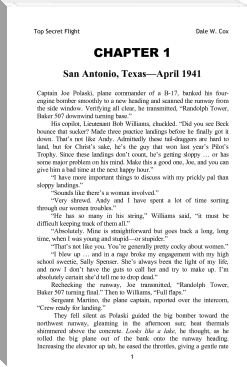Life in a Tank, Richard Haigh [top 10 novels TXT] 📗

- Author: Richard Haigh
- Performer: -
Book online «Life in a Tank, Richard Haigh [top 10 novels TXT] 📗». Author Richard Haigh
It was thought, therefore, that a machine might be devised which would cross shell-craters, wire and trenches, and be at the same time impervious to bullets, and which would contain a certain number of guns to be used for knocking out such machine guns as were still in use, or to lay low the enemy infantry. With this idea, a group of men, in the end of 1915, devised the present type of heavy armoured car. In order to keep the whole plan as secret as possible, about twenty-five square miles of ground in Great Britain were set aside and surrounded with armed guards. There, through all the spring and early summer of 1916, the work was carried on, without the slightest hint of its existence reaching the outside world. Then, one night, the tanks were loaded up and shipped over to France, to make that first sensational appearance on the Somme, with the success which warranted their further production on a larger and more ambitious scale.
We were at a rest camp on the Somme when the chit first came round regarding the joining of the H.B.M.G.C. The Colonel came up to us one day with some papers in his hand.
"Does anybody want to join this?" he asked.
We all crowded around to find out what "this" might be.
"Tanks!" some one cried. Some were facetious; others indifferent; a few mildly interested. But no one seemed very keen about it, especially as the tanks in those days had a reputation for rather heavy casualties. Only Talbot, remembering the derelict and the interest she had inspired, said, with a laugh,—
"I rather think I'll put my name down, sir. Nothing will come of it, but one might just as well try." And taking one of the papers he filled it in, while the others stood around making all the remarks appropriate to such an occasion.
Two or three weeks went by and Talbot had forgotten all about it, in the more absorbing events which crowded months into days on the Somme.
One day the Adjutant came up to him and, smiling, put out his hand.
"Well, good-bye, Talbot. Good luck."
When a man puts out his hand and says "Good-bye," you naturally take the proffered hand and say "Good-bye," too. Talbot found himself saying "Good-bye" before he realized what he was doing. Then he laughed.
"Now that I've said 'Good-bye,' where am I going?" he asked.
"To the Tanks," the Adjutant replied.
So he was really to go; really to leave behind his battalion, his friends, his men, and his servant. For a moment the Somme and the camp seemed the most desirable places on earth. He thought he must have been a fool the day he signed that paper signifying his desire to join another Corps. But it was done now. There were his orders in the Colonel's hand.
"When do I start, sir? And where do I go?" he asked.
"You're to leave immediately for B——, wherever that is. Take your horse as far as the railhead and get a train for B——, where the Tank Headquarters are. Good-bye, Talbot; I'm sorry to lose you." A silent handshake, and they parted.
Talbot's kit was packed and sent off on the transport. A few minutes later he was shaking hands all round. His spirits were rising at the thought of this new adventure, but it was a wrench, leaving his regiment. It was, in a way, he thought, as if he were turning his back on an old friend. The face of Dobbin, his groom, as he brought the horses round was not conducive to cheer. He must get the business over and be off. So he mounted and rode off through a gray, murky drizzle, to the railhead about eight miles away. There came the parting with Dobbin and with his pony. Horses mean as much as men sometimes, and his had worked so nobly with him through the mud on the Somme. He wondered if there would be any one in the new place who would be so faithful to him as Polly. Finally, there was Dobbin riding away, back to M——, with the horse, and its empty saddle, trotting along beside him. It was simply rotten leaving them all!
One has, however, little time for introspection in the Army, and especially when one engages in a tilt with an R.T.O. The R.T.O. has been glorified by an imaginative soul with the title of "Royal Transportation Officer." As a matter of fact, the "R" does not stand for "royal," but for "railway," and the "T" is "transport," nothing so grandiose as "transportation." Now an R.T.O.'s job, though it may be a safe one, is not enviable. He is forced to combine the qualities of booking-clerk, station-master, goods-agent, information clerk, and day and night watchman all into one. In consequence of this it is necessary for the traveller's speech and attitude to be strictly soothing and complimentary. Talbot's obsession at this moment was as to whether B—— was near or far back from the line.
If he supposed that B—— was "near" the line, the R.T.O. might tell him—just to prove how kind Fate is—that it was a good many miles in the rear. But no such luck. The R.T.O. coldly informed Talbot that he hadn't the slightest idea where B—— was. He only knew that trains went there. And, by the way, the trains didn't go there direct. It would be necessary for him to change at Boulogne. Talbot noticed these signs of thawing with delight. And to change at Boulogne! Life was brighter.
Travelling in France in the northern area, at the present time, would seem to be a refutation of the truth that a straight line is the shortest distance between two points. For in order to arrive at one's destination, it is usually necessary to go about sixty miles out of one's way,—hence the necessity for Talbot's going to Boulogne in order to get a train running north.
He arrived at Boulogne only to find that the train for B—— left in an hour.
He strolled out into the streets. Boulogne had then become the Mecca for all those in search of gaiety. Here were civilized people once again. And a restaurant with linen and silver and shining glass, and the best dinner he had ever eaten.
When he had paid his bill and gone out, he stopped at the corner of the street just to look at the people passing by. A large part of the monotony of this war is occasioned, of course, by the fact that the soldier sees nothing but the everlasting drab of uniforms. When a man is in the front line, or just behind, for weeks at a time he sees nothing but soldiers, soldiers, soldiers! Each man has the same coloured uniform; each has the same pattern tunic, the same puttees. Each is covered with the same mud for days at a time. It is the occasion for a thrill when a "Brass Hat" arrives, for he at least has the little brilliant red tabs on his tunic! A man sometimes finds himself envying the soldiers of the old days who could have occasional glimpses of the dashing uniforms of their officers, and although a red coat makes a target of a man, the colour is at least more cheerful than the eternal khaki. The old-time soldier had his red coat and his bands, blaring encouragingly. The soldier of to-day has his drab and no music at all, unless he sings. And every man in an army is not gifted with a voice.
So Talbot looked with joy on the charming dresses and still more charming faces of the women and girls who passed him. Even the men in their civilian clothes were good to look upon.
Riding on French trains is very soothing unless one is in a hurry. But unlike a man in civil life, the soldier has no interest in the speed of trains. The civilian takes it as a personal affront if his train is a few minutes late, or if it does not go as fast as he thinks it should. But the soldier can afford to let the Government look after such minor details. The train moved along at a leisurely pace through the lovely French countryside, making frequent friendly stops at wayside stations. On the platform at Étaples station was posted a rhyme which read:—
The more he saw, the less he spoke;
The less he spoke, the more he heard;
Soldiers should imitate that old bird."
It was the first time that Talbot had seen this warlike ditty. Its intention was to guard soldiers from saying too much in front of strangers. Talbot vowed, however, to apply its moral to himself at all times and under all conditions.
From nine in the morning until half-past two in the afternoon they rolled along, and had covered by this time the extraordinary distance of about forty miles! Here at last was the station of Saint-P——.
Talbot looked about him. Standing near was an officer with the Machine-Gun Corps Badge, whom he hailed, and questioned about the Headquarters of the Tank Corps.
"About ten miles from here. Are you going there?" the fellow asked.
Talbot explained that he hoped to, and being saturated with Infantry ideas, he wondered if a passing motor lorry might give him a lift.
The man laughed. "Why don't you telephone Headquarters and ask them to send a car over for you?" he asked.
Talbot did not quite know whether the fellow were ragging him or not. He decided that he was, for who had ever heard of "telephoning for a car"?
"Oh, I don't believe I'll do that—thanks very much for the hint, all the same," he said. "Just tell me which road to take and I'll be quite all right."
The officer smiled.
"I'm quite serious about it," he said. "We all telephone for cars when we need them. There's really no point in your walking—in fact, they'll be surprised if you stroll in upon them. Try telephoning and you'll find they won't die of shock."
Partly to see whether they would or not, and partly because he found the prospect of a motor car more agreeable than a ten-mile walk, Talbot telephoned. Here he experienced another pleasant surprise, for he was put through to Headquarters with no difficulty at all. A cheerful voice answered and he stated his case.
"Cheero," the voice replied. "We'll have a car there for you in an hour—haven't one now, but there will be one ready shortly."
Saint-P—— was a typical French town, and Talbot strolled around. There were soldiers everywhere, but the town had never seen the Germans, and it was a pleasant place. There was, too, a refreshing lack of thick mud—at least it was not a foot deep.
Although Talbot could not quite believe that the car would materialize, it proved to be a substantial fact in the form of a box-body, and in about an hour he was speeding toward Headquarters. It was dark when they reached the village, and as they entered, he experienced that curious feeling of apprehensive expectancy with which one approaches the spot where one is to live and work for some time to come. The car slowed up to pass some carts on the road, and started forward with such a jerk that Talbot was





Comments (0)